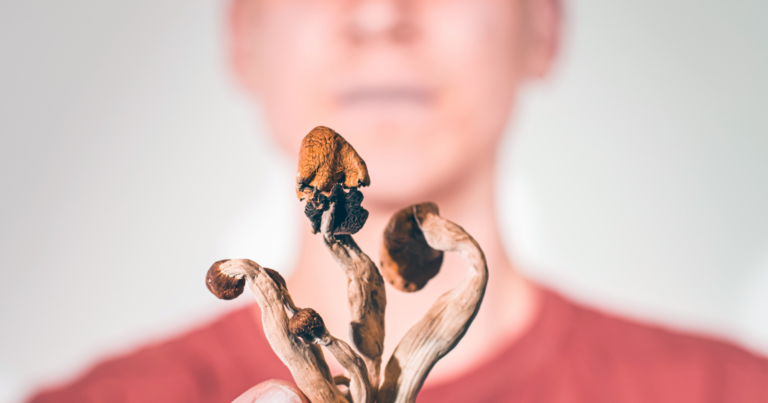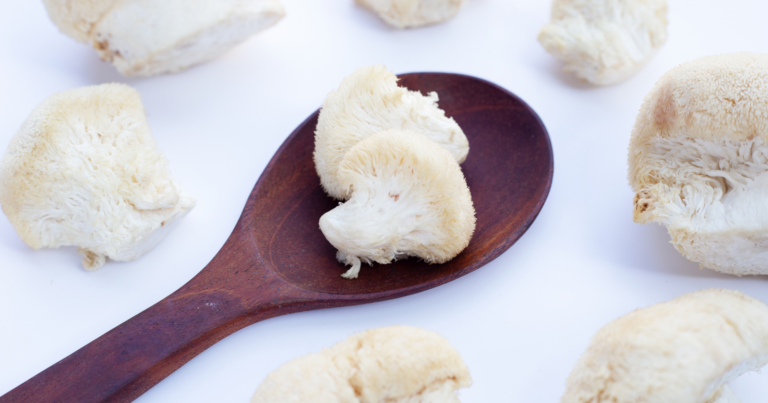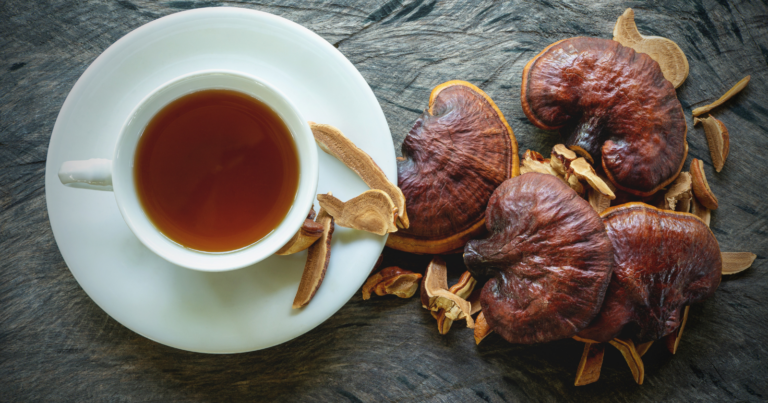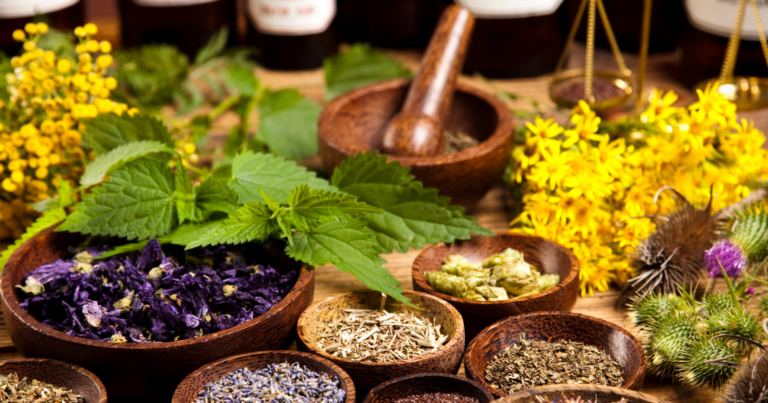Ayurveda, an ancient system of medicine from India, has used the power of nature to heal and nurture the body and mind for thousands of years.
Among its treasures, certain healing herbs stand out for their profound impact on holistic health.
These plants promote the balance of mind, body, and spirit. They’re the embodiment of Ayurveda’s wisdom, offering natural remedies for a wide range of ailments.
Having explored these herbs extensively, I’ve found their benefits to be genuinely transformative.
In this article, we’ll delve into these 9 incredible healing herbs in Ayurvedic medicine and reveal how they can enrich your path towards optimal wellbeing.
1) Turmeric: A powerhouse of healing
Turmeric is indeed the most captivating herb in Ayurvedic medicine due to its vast healing properties.
This vibrant yellow spice, often used in Indian cuisine, packs a powerful punch when it comes to health benefits.
Its active ingredient, curcumin, possesses potent anti-inflammatory and antioxidant properties.
This makes Turmeric an excellent choice for those suffering from chronic conditions like arthritis or heart disease.
But what truly fascinates me is its potential for mental health.
Recent studies suggest that curcumin can cross the blood-brain barrier, making it a promising agent in the fight against neurodegenerative diseases.
As for me, incorporating turmeric into my daily routine has not only helped to alleviate physical discomfort but also notably enhanced my cognitive abilities.
Indeed, Turmeric is a testament to the profound wisdom of Ayurveda – a single herb capable of nurturing our body and mind towards optimal health.
2) Ashwagandha: The stress buster
Among the healing herbs in Ayurvedic medicine, Ashwagandha holds a special place for me due to its remarkable stress-busting properties.
Known as an adaptogen, it’s designed to help the body effectively manage and adapt to stress.
But how does it work?
It’s simple, really.
According to studies, ashwagandha regulates chemical signaling in the nervous system by reducing the level of the stress hormone cortisol.
This natural process helps to calm the nervous system, resulting in reduced anxiety and improved sleep quality.
Interestingly, this herb doesn’t just stop at reducing stress. It also boosts brain function and fights symptoms of depression.
What I’ve found personally is that incorporating Ashwagandha into my wellness routine has resulted in a clearer mind and a more relaxed state of being.
In essence, Ashwagandha is like a breath of fresh air for your nervous system, gently easing away stress and instilling a sense of calm.
3) Brahmi: The brain booster
Now, let’s turn our attention to another equally impressive herb – Brahmi — known scientifically as Bacopa monnieri, is another highly revered herb in Ayurvedic medicine.
This herb is native to India and has been used for centuries due to its powerful rejuvenating properties.
What’s intriguing about Brahmi is its counter-intuitive connection to brain health.
Unlike most herbs, Brahmi has a distinct ability to revitalize the brain, enhancing both memory and concentration.
Brahmi actually stimulates the growth of nerve endings, leading to increased synapses between neurons.
Simply put, this means improved communication within your brain and a significant boost in cognitive abilities.
As someone who has personally witnessed the cognitive benefits of Brahmi, I can vouch for its effectiveness. It’s like giving your brain a much-needed tune-up!
So, if you’re striving for mental clarity and focus, don’t overlook the power of Brahmi. It’s an Ayurvedic gem that can truly elevate your cognitive wellness.

4) Triphala: The digestive aid
Ever wondered how to naturally support your digestive health? Triphala might just be the answer.
Triphala, a blend of three fruits – Amalaki, Bibhitaki, and Haritaki, is widely recognized in Ayurvedic medicine for its potent digestive benefits.
This herbal formula is best known for its potent digestive benefits.
In particular, Triphala supports the entire digestive process, helping to detoxify the body, improve nutrient absorption, and regulate bowel movements.
What’s more, it also boasts anti-inflammatory and antioxidant properties.
Keep in mind that Triphala can be consumed as a powder mixed with warm water or honey, or taken as a tablet or capsule.
Trust me, regular use of Triphala can significantly improve digestive health and overall well-being.
5) Neem: The all-round protector
Moving on from the digestive system, let’s focus on another Ayurvedic marvel – Neem.
Known as the “village pharmacy” in India, Neem is revered for its extensive medicinal properties. This herb is a true all-rounder, offering benefits that span across various aspects of health.
Here are a few areas where Neem shines:
- Skincare: Its anti-inflammatory and antibacterial properties make it a natural remedy for acne and skin infections.
- Dental health: It prevents gum diseases and keeps oral bacteria at bay.
- Detoxification: Neem purifies the blood, aiding in the removal of bodily toxins.
Personally, I’ve found Neem to be a potent ally in maintaining overall health. Its wide-ranging benefits make it an invaluable addition to any wellness routine.
Simply put, with its powerful protective properties, Neem truly embodies the holistic healing philosophy of Ayurveda.
6) Amla: The immunity booster
If there’s one herb I believe should be part of everyone’s daily routine, it’s Amla, also known as Indian Gooseberry.
Why, you ask?
Well, Amla is a powerhouse of Vitamin C, a nutrient that’s essential for boosting immunity. In fact, Amla has twenty times more Vitamin C than an orange!
In my wellness journey, incorporating Amla has significantly enhanced my immune system.
This has made me less susceptible to common illnesses like cold and flu.
Moreover, Amla is a potent antioxidant that protects against oxidative stress. This equips our body to fight against the damaging effects of free radicals.
7) Shatavari: The women’s wellness herb
Imagine a herb that specifically targets women’s health issues. Sounds too good to be true?
Well, then, let me introduce Shatavari.
Shatavari, or Asparagus racemosus, is a highly revered herb in Ayurvedic medicine.
Traditionally used in Ayurveda as a rejuvenating tonic for females, Shatavari has proven beneficial in addressing various women’s health concerns.
From regulating menstrual cycles to easing menopausal symptoms, this herb seems to have it all covered.
Moreover, it is often used to enhance fertility and support lactation in nursing mothers.
So, ladies, if you’re looking for a natural ally to navigate the ups and downs of women’s health, consider Shatavari. It’s truly a gift of Ayurveda dedicated to women’s wellness.
8) Aloe Vera: The hydrating herb
Our exploration of healing herbs in Ayurvedic medicine wouldn’t be complete without mentioning Aloe Vera, also known as Aloe Barbadensis.
This succulent plant is renowned for its cooling and healing properties.
Aloe Vera is packed with antioxidants, enzymes, vitamins A and C, and it is highly anti-inflammatory. Its gel-like substance is used for treating burns, acne, and dry skin.
Additionally, drinking Aloe Vera juice can help hydrate the body, improve liver function, and aid in digestion.
Aloe Vera can be grown at home and applied topically or consumed internally.
Its fresh juice can be added to your daily diet for a refreshing and healthy supplement.
9) Tulsi: The sacred herb
We’ve explored a variety of healing herbs, but there’s one that holds a special, sacred place in Ayurvedic medicine – Tulsi, or Holy Basil.
Tulsi is often referred to as the “Queen of Herbs” due to its wide-ranging health benefits. It’s known for its adaptogenic properties, helping the body adapt to stress and promoting mental balance.
But what sets Tulsi apart is its spiritual significance.
It’s considered sacred in Indian culture, often grown in households for its purifying and spiritual effects.
And if you’re seeking a herb that offers both health and spiritual benefits, Tulsi is your go-to choice. Its holistic healing properties truly embody the essence of Ayurveda.
Discovering your Ayurvedic path
Now that we’ve explored the healing power of these Ayurvedic herbs, the next step is to incorporate them into your daily routine.
Each herb comes with its own unique set of benefits and can be used in various forms.
Some can be brewed as teas, others are best consumed as supplements, while some can be applied topically.
One thing is for sure: the world of Ayurvedic herbs is vast and rich in healing potential. These 9 herbs, each with their unique benefits, only scratch the surface.
The key to benefiting from these herbs is consistency.
Ayurveda is not a quick-fix solution but a lifestyle that promotes long-term health and well-being. It’s about understanding your body’s needs and nurturing it with natural resources.
Also, remember that while these herbs are generally safe for consumption, it’s always best to consult with a healthcare professional or an Ayurvedic practitioner before starting any new supplement regimen.











